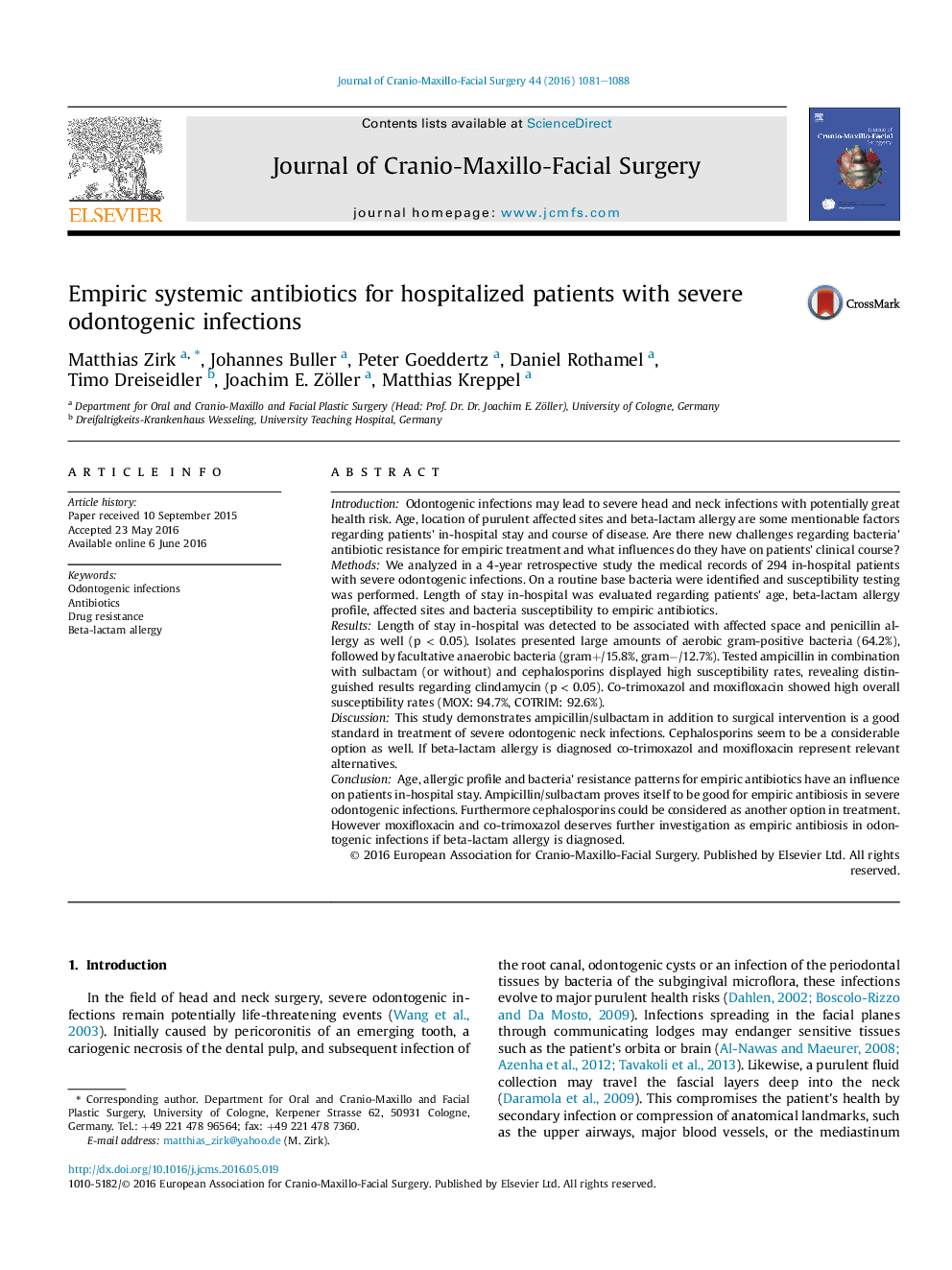| کد مقاله | کد نشریه | سال انتشار | مقاله انگلیسی | نسخه تمام متن |
|---|---|---|---|---|
| 3142826 | 1196793 | 2016 | 8 صفحه PDF | دانلود رایگان |
IntroductionOdontogenic infections may lead to severe head and neck infections with potentially great health risk. Age, location of purulent affected sites and beta-lactam allergy are some mentionable factors regarding patients' in-hospital stay and course of disease. Are there new challenges regarding bacteria' antibiotic resistance for empiric treatment and what influences do they have on patients' clinical course?MethodsWe analyzed in a 4-year retrospective study the medical records of 294 in-hospital patients with severe odontogenic infections. On a routine base bacteria were identified and susceptibility testing was performed. Length of stay in-hospital was evaluated regarding patients' age, beta-lactam allergy profile, affected sites and bacteria susceptibility to empiric antibiotics.ResultsLength of stay in-hospital was detected to be associated with affected space and penicillin allergy as well (p < 0.05). Isolates presented large amounts of aerobic gram-positive bacteria (64.2%), followed by facultative anaerobic bacteria (gram+/15.8%, gram−/12.7%). Tested ampicillin in combination with sulbactam (or without) and cephalosporins displayed high susceptibility rates, revealing distinguished results regarding clindamycin (p < 0.05). Co-trimoxazol and moxifloxacin showed high overall susceptibility rates (MOX: 94.7%, COTRIM: 92.6%).DiscussionThis study demonstrates ampicillin/sulbactam in addition to surgical intervention is a good standard in treatment of severe odontogenic neck infections. Cephalosporins seem to be a considerable option as well. If beta-lactam allergy is diagnosed co-trimoxazol and moxifloxacin represent relevant alternatives.ConclusionAge, allergic profile and bacteria' resistance patterns for empiric antibiotics have an influence on patients in-hospital stay. Ampicillin/sulbactam proves itself to be good for empiric antibiosis in severe odontogenic infections. Furthermore cephalosporins could be considered as another option in treatment. However moxifloxacin and co-trimoxazol deserves further investigation as empiric antibiosis in odontogenic infections if beta-lactam allergy is diagnosed.
Journal: Journal of Cranio-Maxillofacial Surgery - Volume 44, Issue 8, August 2016, Pages 1081–1088
